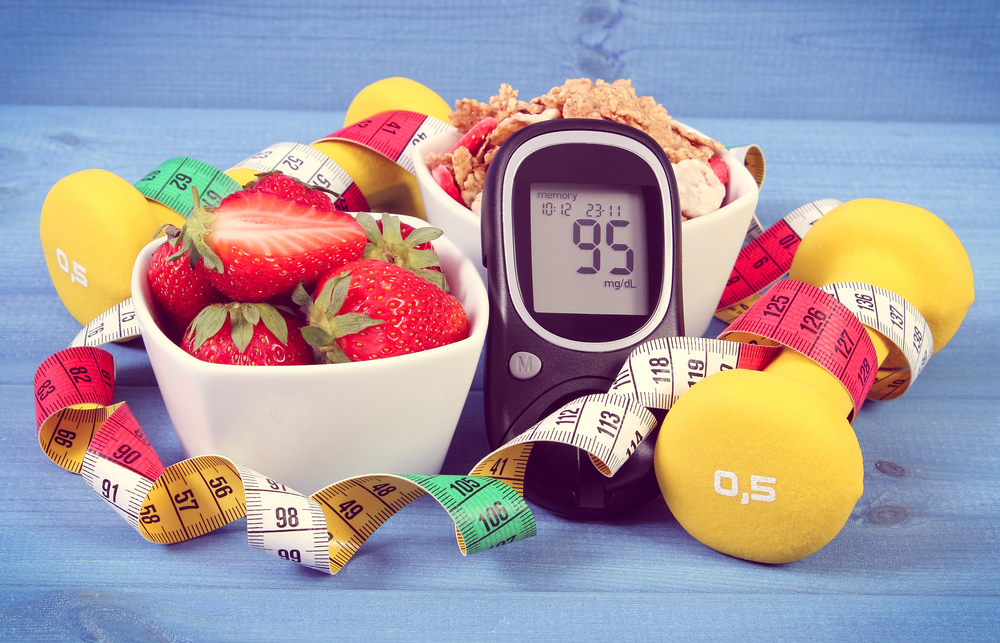Quick Summary
- Women with PCOS often have insulin resistance, which makes it harder for their bodies to control blood sugar.
- This increases the risk of type 2 diabetes, even in women who are not overweight.
- Weight gain, lack of exercise, and family history raise the chance of developing both PCOS and diabetes.
- Hormonal problems, like high levels of male hormones, also affect how the body uses insulin.
- Early diabetes signs in women with PCOS can include tiredness, skin darkening, or frequent urination.
- Healthy habits and medications, such as metformin, may help reduce this risk over time.
Polycystic ovary syndrome, or PCOS, is a health condition that many women face during their reproductive years. It affects how the ovaries function and often causes other symptoms. But another serious concern is its link to type 2 diabetes.
Type 2 diabetes occurs when the body does not use insulin well or does not make enough of it. Many women with PCOS have trouble with insulin. Their bodies do not respond to it properly, which raises their risk of developing diabetes.
This blog will look at how PCOS and diabetes are connected, what causes the increased risk, and what women can do about it.

What Is Polycystic Ovary Syndrome (PCOS)?
Polycystic ovary syndrome, or PCOS, is a common condition that affects women during their reproductive years. It alters how the ovaries function and leads to issues with hormone levels.
Many women find out they have PCOS only after facing trouble with their periods or trying to get pregnant. In PCOS, the ovaries enlarge and contain multiple follicles. These are small fluid-filled sacs that do not always develop into mature eggs.
This can cause missed or irregular periods, one of the most common signs of polycystic ovary syndrome. Some women with PCOS also notice physical changes that happen because of high androgen levels, including high testosterone. PCOS also affects the skin, metabolism, and how the body stores fat.
Doctors do not know the exact cause of PCOS. However, it is linked to changes in the endocrine system. Low levels of follicle-stimulating hormone (FSH) and high levels of male hormones can interfere with the normal function of the ovaries. These hormonal changes also affect how the body responds to insulin.
Doctors typically diagnose polycystic ovary syndrome by evaluating a person's symptoms, hormone levels, and the appearance of the ovaries on an ultrasound. The symptoms may be mild in some women and more evident in others.
How PCOS Affects The Body's Insulin Response
Insulin is a hormone made by the pancreas. Its main job is to help move glucose from the blood into the body's cells. The cells then use this glucose for energy or store it for later.
When insulin production and response are normal, blood sugar levels remain normal. In women with polycystic ovary syndrome, the body often does not respond to insulin properly. This problem is called insulin resistance. In reaction, the pancreas increases its insulin production to regulate blood sugar levels.
Initially, this may help, but over time, the body becomes resistant to the extra insulin. As insulin resistance increases, blood glucose levels begin to rise. The body cannot use sugar properly, so it builds up in the system. This increases the risk of developing type 2 diabetes.
PCOS compounds this risk by affecting hormone balance and fat management. Extra insulin in the body also affects other hormones. It can raise androgen levels, which are already high in many women with PCOS. This can lead to symptoms like acne or excessive hair growth. It can also make it harder for the ovaries to release eggs on a regular basis.
Some women with insulin resistance notice changes in their skin. A common sign is acanthosis nigricans, which show up as dark, thick patches on the neck, underarms, or elsewhere. These skin changes often mean that the body is not using insulin well.
Common Risk Factors In PCOS And Type 2 Diabetes
PCOS and type 2 diabetes often appear together because they share many of the same risk factors. These shared traits explain why women with PCOS are more likely to develop diabetes.
One major factor is obesity. Excess body fat, particularly around the waist, can hinder the body's ability to respond to insulin. This is called insulin resistance. Over time, this can raise blood sugar and lead to type 2 diabetes. Many women with PCOS gain weight easily, even with minor changes in diet or activity. Some are overweight even before they are diagnosed.
Body weight is not the only concern. A lack of exercise and eating habits also play a role. A diet high in sugar and processed foods exacerbates insulin resistance. At the same time, low physical activity increases the risk for both PCOS and diabetes. Genetics can add to the risk.
Women with a family history of diabetes may be more likely to develop blood sugar problems. Age is another factor. As women with PCOS get older, their risk of diabetes increases. Women diagnosed with PCOS between the ages of 18 and 24 may face up to 10 times the risk of developing T2D compared to peers without PCOS.
The risk decreases with age and becomes less significant after age 35. [1]
Why PCOS Increases The Risk Of Type 2 Diabetes
Polycystic ovarian syndrome increases the risk of developing type 2 diabetes for several reasons. The link begins with how the condition affects the body's hormones, especially those involved in metabolism.
Women with PCOS often have a hormonal imbalance that disrupts how the body processes insulin. Insulin moves the sugar from the blood into cells. When the body becomes resistant to insulin, more of it is needed to do the same job. Over time, this insulin resistance leads to higher blood sugar levels, which raises the chances of diabetes.
Insulin resistance is a primary driver of metabolic issues in PCOS. It is not just a side effect but a key part of how the condition works. Many women with PCOS have insulin resistance even if they are not overweight. This shows that PCOS itself plays a role beyond lifestyle or body weight alone.
A large meta-analysis involving over 60,000 PCOS patients found that the risk of developing type 2 diabetes was 3.5 times higher than in women without the condition. This confirms that PCOS is strongly linked to a higher and earlier diabetes risk. [2]
This process also affects the endocrine system, which regulates the production and utilization of hormones in the body. Higher insulin levels can increase androgen levels, such as testosterone. These changes can make symptoms of PCOS worse and further disrupt how the body manages sugar.
Symptoms Of PCOS And Early Signs Of Diabetes
Polycystic ovary syndrome shows up in different ways. Many women notice changes in their periods, body, or skin. These symptoms often overlap with early signs of diabetes, which can make them harder to understand at first.
Irregular periods are also a common symptom of PCOS. Some women may not ovulate regularly, which can lead to trouble getting pregnant. Weight gain is also common, even when eating habits and exercise routines have not changed.
Skin changes are important to notice. Some women develop dark, thick patches on the neck or underarms. This may be a sign of insulin resistance. Other changes, such as acne or increased hair growth on the face or body, may also occur due to hormonal shifts.
Early signs of diabetes may include frequent urination, feeling very thirsty, or wounds that heal slowly. Fatigue is another sign that can affect daily life. Fatigue caused by high blood sugar may add to the tiredness already present with PCOS. Together, these symptoms may indicate a more serious underlying issue.
If you have PCOS and notice any of these changes, it is important to speak with a doctor. A simple check-up and blood test can lead to early diagnosis.
Long-Term Health Risks For Women With PCOS
PCOS is more than a condition that affects periods or fertility. Over time, it causes several health problems that continue into later life. Many of these issues are linked to the way PCOS affects how the body uses insulin.
One of the biggest concerns is heart disease. Women with PCOS are more likely to have high blood pressure, higher cholesterol, and more body fat around the belly. These changes increase the strain on the heart and raise the risk of heart problems later in life.
It also raises the chance of having gestational diabetes during pregnancy. This condition affects how insulin works during pregnancy and can lead to larger babies or premature birth. In some cases, both mother and baby may have a higher risk of diabetes or weight problems in the future.
Women with PCOS may also find it harder to become pregnant due to irregular ovulation. If they do get pregnant, the chances of miscarriage, high blood pressure, or other issues are also higher. These risks make regular check-ups and proper care very important.
Insulin resistance plays a big part in these long-term problems. It not only increases the risk of diabetes, but also affects how the body handles weight, blood sugar, and inflammation. These changes can build up and induce more health problems as women age.

Ways To Lower Diabetes Risk In PCOS
Women with PCOS often ask how they can lower their risk of developing type 2 diabetes. The good news is that several treatment options and lifestyle adjustments can make a real difference. These steps focus on improving insulin function, managing weight, and supporting hormone balance.
Adopt Healthy Habits
One of the most effective ways to reduce risk is through lifestyle changes. A balanced diet high in fiber, moderate in protein, and low in processed sugar helps the body produce and use insulin more efficiently.
Whole grains, lean proteins, vegetables, and healthy fats all support better glucose control. Exercise also plays an important role. Physical activity helps the body lower blood sugar levels and improve insulin function. Even moderate movement, such as walking for 30 minutes most days, can yield significant benefits over time.
Regular activity also supports weight loss, which is especially helpful for women with PCOS.
Lose Weight
Managing weight can help reduce insulin levels and improve hormone balance. Losing even a small amount of weight, approximately 5-10% of total body weight, can relieve PCOS symptoms and reduce the risk of diabetes. Weight loss can also help improve ovulation and make periods more regular.
Medications
Sometimes, lifestyle changes are not enough to address the issue. Doctors may suggest drug therapy like metformin. This medicine helps your body use insulin better and also lowers your blood sugar levels. Metformin is common in PCOS care because it targets insulin resistance.
A study found that metformin, when combined with healthy habits, helped women with PCOS reduce their insulin resistance, body mass index (BMI), and blood sugar levels. Women with higher BMI saw the most benefit. This supports metformin as a helpful option for managing PCOS and reducing diabetes risk. [3]
Other medicines may be used to manage hormones or other symptoms. A doctor can help decide what works best for each person. At Fem Excel, we offer testing and personalized care plans to help manage insulin resistance, support healthy weight, and lower diabetes risk.
Final Thoughts
PCOS and diabetes often happen together and can affect a woman's health in many ways. Both conditions share similar symptoms, including weight changes, irregular periods, and insulin resistance.
Many women wonder, Can PCOS cause diabetes? While the exact cause is not known, they clearly interact with each other and increase the risk of long-term health problems. Getting diagnosed early and checking in with a doctor regularly can help manage both conditions better.
Treatment typically involves a combination of healthy eating, regular exercise, and, in some cases, medication. These steps can reduce symptoms, lower risk, and improve daily life. Women with PCOS and diabetes need care that looks at the full picture. This means monitoring changes in symptoms and adjusting treatment as needed.
At Fem Excel, we provide support made for women facing both PCOS and diabetes. Our services include laboratory testing, customized treatment plans, and ongoing support and guidance. With the right care, women can better manage their health and feel more in control of their future.
References
1. Lath, D., Cherian, K. E., Paul, T. V., & Kapoor, N. (2022). Beyond diabetes remission, a step further: Post-bariatric surgery hypoglycemia. World Journal of Diabetes, 13(3), 278-281. https://doi.org/10.4239/wjd.v13.i3.278
2. Livadas, S., Paparodis, R., Anagnostis, P., Gambineri, A., Bjekić-Macut, J., Petrović, T., Yildiz, B. O., Micić, D., Mastorakos, G., & Macut, D. (2023). Assessment of Type 2 Diabetes Risk in Young Women with Polycystic Ovary Syndrome. Diagnostics, 13(12), 2067. https://doi.org/10.3390/diagnostics13122067
3. Melin J, Forslund M, Alesi S, Piltonen T, Romualdi D, Spritzer PM, Tay CT, Pena A, Witchel SF, Mousa A, Teede H. The impact of metformin with or without lifestyle modification versus placebo on polycystic ovary syndrome: a systematic review and meta-analysis of randomized controlled trials. Eur J Endocrinol. 2023 Aug 2;189(2): S37-S63. doi: 10.1093/ejendo/lvad098. PMID: 37536294.






